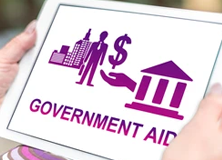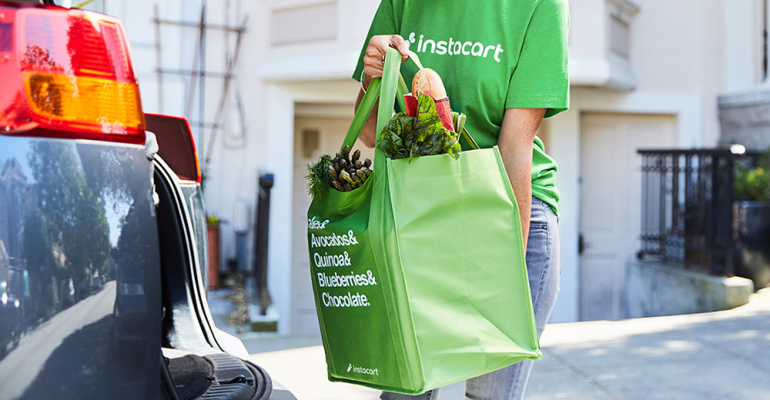Cash Assistance Programs in Texas
Cash assistance, otherwise known as welfare or cash aid, is available for families that fall below the poverty line in Texas and are struggling either to pay their bills or provide nutrition to their dependents. One program that offers such aid is TANF, (Temporary Assistance for Needy Families). Other options for help exist such as the federal ESG fund and the Texas THHSC. Some private ventures, like Catholic Charities, also offer programs for people who need assistance with covering their financial burdens. One such resource is Catholic Charities’ Family Assistance Program.
We’ll go over all these resources and more in the article below.
What is the Poverty Line?
The poverty line in the United States falls at around $25,500 annually for a family of four, consisting of two parents and two children. This boils down to a family netting just over $2,000 a month for expenses. For a single person with no dependents, that line is drawn at $12,500 annually.
The average cost of rent for a two-bedroom unit in the state of Texas is $1,500 a month. In the ‘family of four’ scenario, this would leave a family living at the poverty line with $500 each month to cover groceries, educational needs, and internet/phone coverage. With those numbers in mind, it is easy to see how a family could find themselves in need of financial support.
TANF in Texas
TANF can be paid monthly or given once to a family in crisis. It is a program meant for families with minor children. To meet the criteria for the program, the adults in the household must not have work or be able to access money through work. Once in the program, those adults will have to accept job training and prove they are actively looking for appropriate work. They also will be required to stay drug- and alcohol-free.
The following charts are data presented from Texas’s official government website. The first chart shows the earnings limit (per month) to qualify for the program:
Family size |
Child-only cases | Home with 1 parent or 1 caretaker | Home with 2 parents or 2 caretakers |
| 1 | $64 | $78 | -------- |
| 2 | $92 | $163 | $125 |
| 3 | $130 | $188 | $206 |
| 4 | $154 | $226 | $231 |
| 5 | $198 | $251 | $268 |
This chart shows the maximum the TANF fund will pay each month for enrolled families:
| Family size | Child-only cases | Home with 1 parent or 1 caretaker | Home with 2 parents or 2 caretakers |
| 1 | $107 | $130 | -------- |
| 2 | $153 | $270 | $206 |
| 3 | $215 | $312 | $341 |
| 4 | $256 | $375 | $383 |
| 5 | $329 | $416 | $444 |
TANF is often received as a monthly benefit but can also be used as a one-time benefit for families in an unforeseen crisis. This includes circumstances such as losing a job, a home, or a medical emergency. The one-time TANF assistance can only be used once per year.
Grandparents and other kin caretakers can sign up for TANF, so long as they serve as the household’s guardians. Pregnant women may also be eligible.
TANF can be used for a variety of basic needs. These include clothing, laundry, medications, toiletries, and transportation. To fill out an application (in English or Spanish) visit here.
Basic Needs � Family Assistance Program
This program is funded through Catholic Charities Archdiocese. It is targeted at people who meet the HUD income cutoffs, are at least two months late in rental payments, or have received notification that the shut off their utilities is impending. The program also has a specialized branch focused on supporting those who are HIV positive. The program is a mix of case management and temporary financial disbursements. The fund’s goal is to help a family get back on their feet or access a long-term option for support by showing individuals how to navigate governmental benefits.
The Basic Needs program provides access to weekend Food Fairs, where a client can fill their pantries at little or no cost. In addition, the case managers are charged with helping enrollees access health services including screenings and any necessary medical tests.
To see if you or someone you know who may be in need qualifies, visit their website.
Educational Scholarship Program
This program is offered by Lighthouse Christian Ministries. It exists to help people experiencing barriers to paying for college or increasing their income to better support their families. One-on-one coaching is provided to enrollees, and financial assistance may be granted based on need.
This video highlights the aid provided by the Educational Scholarship Program and is featured on Lighthouse Christian Ministries’ website.
Emergency Utility and Rental Assistance
This program focuses mainly on those who live paycheck to paycheck and experience an unforeseen monetary crisis such as a car breakdown, a medical emergency, or being laid off from a job. The fund is provided by Interfaith Care Ministries which states that its overall goal is to provide, “efforts (that) focus on returning families like these to their pre-financial crisis state.”
To be eligible, the organization asks for proof of these unforeseen circumstances, such as “Any documentation showing why they are in crisis, such as doctor or hospital bills, car repair bills, or theft reports.” Last year, ICM assisted nearly 2,000 individuals in need.
The fund will temporarily help clients pay for food, housing costs, and utility bills.
To find out more visit Epiphany of the Lord’s website here.
Texas Rent Relief
This program is exactly what it sounds like. It exists, through federal funding, to help those who’re in peril of experiencing homelessness because they can no longer afford rent or are behind on rent payments. In January of this year, the fund was depleted, and those that were in the process of being evicted were warned there would be no more resources for them.
However, the fund was replenished by government grants in March. The Texas Rent Relief website lists these rules for qualifying for releases of money from the fund:
“qualified for unemployment benefits, OR
due to or during the pandemic:
experienced a reduction in income,
incurred significant costs, OR
experienced other financial hardship.
AND one or more individuals within the household must demonstrate:
That they are at risk of experiencing homelessness or housing instability, which may include a past due utility or rent notice or eviction notice,
OR
That unless they receive rental assistance, they would have to move to an unsafe/unhealthy environment like a shared living situation or emergency shelter.”
To find out more, visit the Texas Rent Relief homepage.
Utility, Rent/Shelter/Mortgage Assistance - Grand Prairie United Charities
At Grand Prairie United Charities, families who cannot make a month’s rent are welcome to fill out an application for rental financing. In this program, the family cannot be past due on their rent from previous months or enrolled in section 8 housing. How much assistance is available depends on the health of the charity’s donation streams. They also provide education about creating and sticking to a budget.
This is what Grand Prairie United Charities has to say about its responsibility to the community, “Grand Prairie United Charities was founded in 1955 to meet the emergency needs of Grand Prairie residents who were experiencing financial setbacks. We believe that prompt intervention in the form of emergency assistance can ward off a potential crisis and prevent the family or individual from being without shelter, food, or utilities.” Check out their website for more information.
Get the Help You Need
Remember that if you need help with meeting your or your family’s basic needs, there are support nets out there in your community and in your country. Following the COVID pandemic and the resultant changes in the workforce, many who were once firmly in the ‘middle class’ step on the financial ladder have struggled to maintain housing and the funds for basic needs. With rents increasing and wages stagnating, this problem may increase in the coming years.
To find out more, you can watch this video, which highlights a program called Domesticas Unidas, which was born out of the pandemic and focuses on keeping individuals and families housed safely and with dignity.
You are not alone. One in seven Americans rely on food pantries to stave off hunger in their households, and many of these folks are working, are responsible, and are answerable to dependents that need full bellies in order to be the best version of themselves at school. One benefit available to families not mentioned above, due to it not being a cash assistance program, is the countrywide SNAP (Supplemental Nutrition Assistance Program) plan.
If you or your family is struggling to find the finances to buy healthy pantry staples, visit Your Texas Benefits.

 2022-07-07
2022-07-07
 2022-10-04
2022-10-04